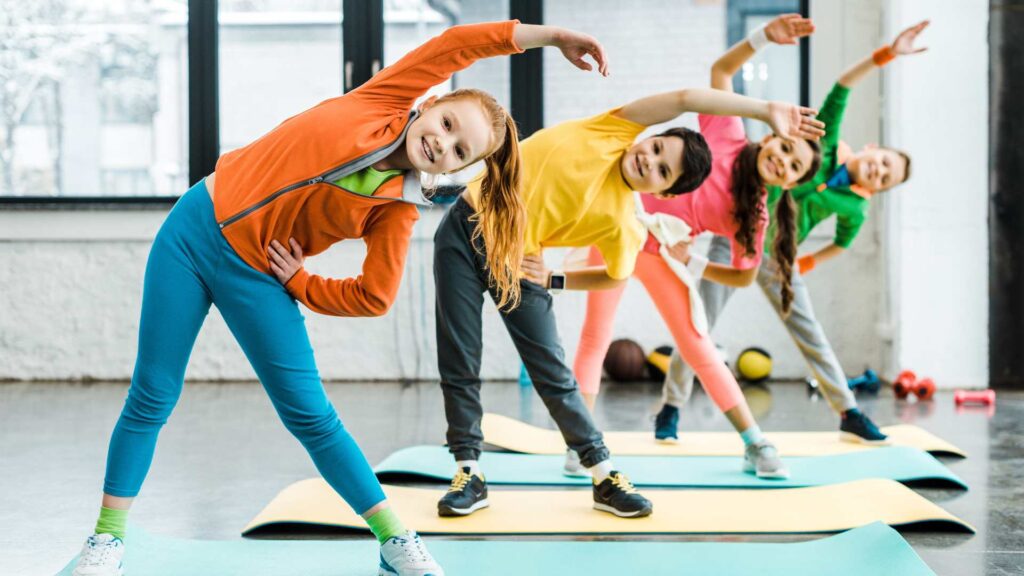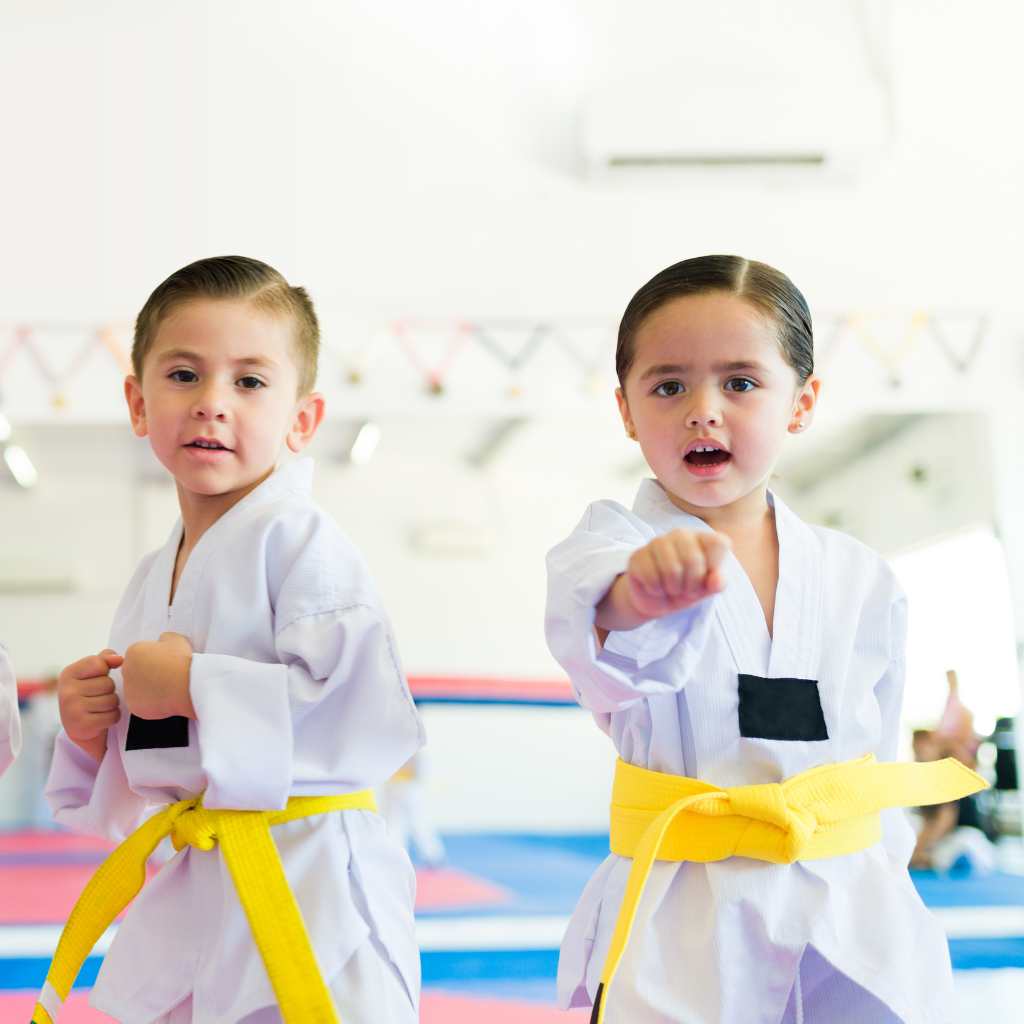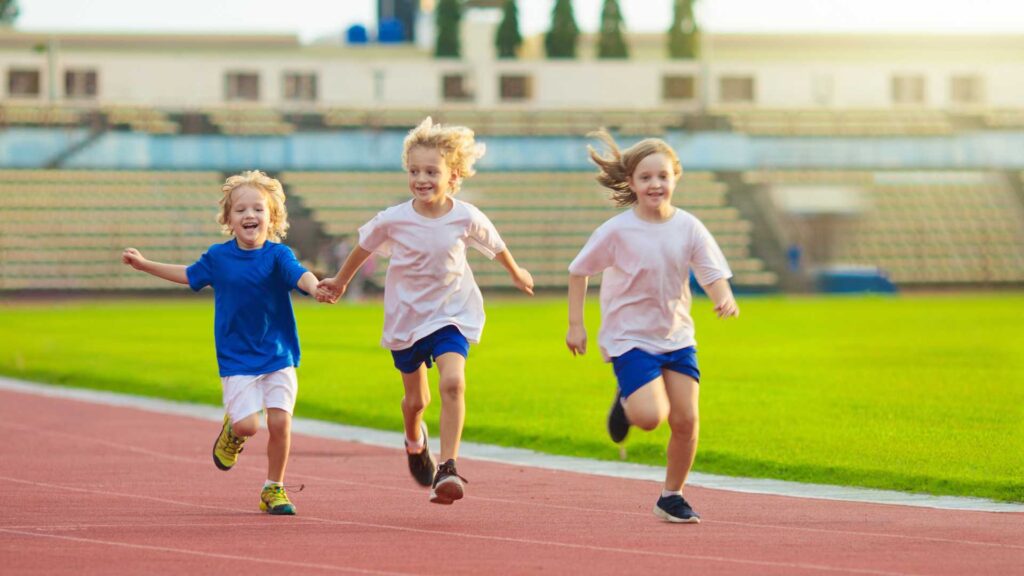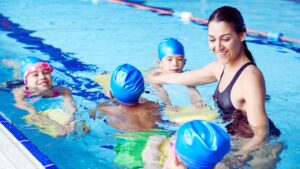Table of Contents
What sports are good for children with autism?
We all know the benefits of exercise and physical activity for our health and well-being. However, when individuals promote sports, the specific challenges these activities pose for children and teens with autism spectrum disorder (ASD) are often not considered. Sports for children with autism can seem intimidating due to the condition’s inherent difficulties, such as motor coordination problems, communication difficulties, and sensory sensitivities.
Parents and caregivers must understand that these difficulties do not mean that children with autism cannot participate in sports. On the contrary, it is crucial to address and consider these challenges to ensure a successful experience.
At ABA Centers of Pennsylvania, we emphasize the importance of exercise in skill development and quality of life for children with autism. Many parents and caregivers wonder: What sports are good for children with autism? In this blog, we provide a comprehensive guide to autism and sports, highlighting four key benefits and providing a list of the best sports for children with autism. Keep reading to learn more!
Autism and Sports: Uncovering the Benefits
- Enhances Physical Fitness: Regularly participating in sports significantly improves physical fitness, which is crucial for overall health and well-being. Engaging in physical activities provides numerous benefits:
- Boosts Cardiovascular Health: Engaging in sports helps to boost heart health and enhance blood flow, decreasing the chances of heart-related problems.
- Increases Strength: Various sports help develop muscular strength and endurance, enhancing physical performance in daily tasks.
- Elevates Energy Levels: Regular exercise boosts stamina and reduces fatigue, enabling individuals to feel more energetic throughout the day.
- Promotes a Healthy Lifestyle: Consistent physical activity is vital for weight management and overall health, especially for those on the autism spectrum, as highlighted by research published in Frontiers in Psychiatry.
- Development of Motor Skills: Sports offer an excellent opportunity for developing and refining motor skills, which individuals with autism may require additional support to achieve:
- Repetitive Nature of Certain Sports: Activities such as swimming, martial arts, and track and field involve repetitive motions that help individuals with autism practice and enhance their motor coordination.
- Structured Environment for Skill Improvement: Sports provide a systematic and controlled setting where individuals can concentrate on specific movements, thereby improving both gross and fine motor skills.
- Enhanced Socialization: Most individuals with autism exhibit challenges with social interactions, but sports provide a unique and supportive environment to improve social skills:
- Opportunities to Interact with Peers: According to the International Institute of Academic Research and Development, team sports and group activities offer structured settings where individuals with autism can engage with others, fostering a sense of community.
- Development of Essential Social Skills: Participation in sports teaches vital social skills such as communication, cooperation, and teamwork, which are crucial for building relationships.
- Safe Space to Practice Social Skills: Sports rules and structure create a predictable environment where individuals with autism can comfortably practice and enhance their social interactions.
- Building Confidence in Social Settings: Success in sports can boost self-esteem and confidence, leading to more positive interactions in various social situations.
- Stress and Anxiety Management: The Autism Research Institute found that almost 40% of children with ASD experience some anxiety disorder. However, sports can significantly aid in managing stress and anxiety:
- Physical Activity Reduces Stress: Exercise is well-known for its ability to lower stress levels by releasing endorphins and promoting a sense of well-being.
- Productive Outlet for Anxiety: Engaging in sports provides a valuable outlet for channeling nervous energy and reducing feelings of anxiety.
- Mental Break from Daily Stresses: The focus required in sports offers a mental break from daily worries, helping individuals relax and shift their attention away from stressors.
- Enhanced Overall Mental Health: Regular participation in sports can lead to better mood regulation, improved sleep, and a more positive outlook on life.

The Best Sports for Children with Autism
When selecting sports for children with autism, it is essential to consider the potential challenges they may face. Although each child on the autism spectrum experiences different issues at varying levels, common difficulties such as communication barriers, coordination problems, sensory sensitivities, muscle tone variations, and anxiety can impact their participation in sports.
Below, we present a list of the best sports for children with autism, thoughtfully curated by ABA Centers of Pennsylvania. These recommendations consider the unique challenges associated with autism and sports.
Team Sports for Children with Autism
While many team sports require active communication between players and coaches, some offer a more individualized experience that still contributes to a group effort. These include:
- Track and Field: Track and field is an ideal sport for children with autism. It builds endurance and promotes a healthy lifestyle, offering teamwork opportunities in relay events. Personal achievements in activities like the long jump can boost confidence and motivation.
- Bowling: Bowling features a predictable and repetitive structure that can be comforting for children with ASD who thrive on routine. This sport requires hand-eye coordination, balance, fine and gross motor skills, concentration, and attention, all of which help to develop and improve focus.

Additionally, bowling can be a social activity, teaching children to wait their turn, cheer for others, and work together towards a common goal.
- Gymnastics: Gymnastics enhances both fine and gross motor skills while developing balance, flexibility, and coordination. This sport improves body awareness and motor control through structured routines and regular practice. Children with autism often thrive in environments where expectations are clear and consistent. Gymnastics also strengthens muscles and increases flexibility, leading to better posture and reduced injury risks. Participation in gymnastics classes offers social interaction opportunities, teaching children to follow instructions, work in teams, and develop communication and cooperation skills.
Individual Sports for Children with Autism
While fostering social interaction is an essential goal for parents and caregivers of children with ASD, many individual sports can offer substantial benefits by focusing on personal development and growth rather than competition. Here are some sports that could be advantageous for your loved one:
- Swimming: Water’s calming and relaxing effect can help reduce stress. Swimming improves both fine and gross motor skills through coordinated movements, which develop muscle strength, endurance, and coordination. Additionally, the sensory experience provided by water can benefit children with sensory sensitivities. Learning to swim can boost self-confidence and promote independence, giving children a sense of accomplishment when they master new skills.
- Martial Arts: Karate or taekwondo offers clear structure and established routines, which can benefit children on the spectrum who thrive in predictable environments. These disciplines require concentration and attention to detail to help improve these skills.

The practice develops gross motor coordination, strength, and flexibility, with repetitive exercises enhancing body control and posture. Progressing through different belts and levels can increase self-confidence and self-discipline. Moreover, martial arts teach respect, cooperation, and following directions, enhancing social skills.
- Equestrian (Horseback Riding): Horseback riding demands balance and coordination, aiding in the development of these skills in children with autism. It strengthens core muscles and improves posture. Interaction with horses provides a rich sensory experience, as the sensation of the horse’s movement and the touch of its coat benefit children with sensory sensitivities. Working with horses helps children develop social and emotional skills like empathy, patience, and responsibility. Horses can respond to children’s emotions, aiding in the development of greater emotional awareness. Horseback riding can enhance self-confidence and self-esteem, providing a sense of achievement. Equine therapy often occurs in peaceful, natural settings, which can be relaxing and beneficial for reducing stress and anxiety.
Autism Sports Programs in Pennsylvania to Consider
- Erie Adaptive Sailing Experience (EASE): For those interested in sailing or spending time on the water, EASE offers a supportive environment for individuals with physical and cognitive conditions to explore new adventures and build confidence. The Erie Adaptive Sailing Experience at the Bayfront Maritime Center has received the Robie Pierce Award for Adaptive Sailing Program of the Year from US Sailing.
- Gliding Stars of Erie: This adaptive ice-skating program provides individuals with disabilities the opportunity to enhance their potential through ice skating. Gliding Stars of Erie uses the sport of ice skating to promote the physical, mental, and emotional growth of individuals with disabilities.
- Lakettes Gymnastics Academy: Gymnastics classes cater to the needs of students who require additional support due to mental or physical challenges. The instructors specialize in various teaching techniques, particularly for individuals with autism. Classes cover all apparatus, including vault, bars, balance beam, rings, tumbling, and trampoline. Strength, flexibility, coordination, and fine and gross motor skills are integral parts of the weekly curriculum.
- Kinney Center for Autism Education and Support: This center offers Saturday Sports programming designed to help children stay healthy and improve agility through engaging in new activities.
- Philadelphia Studio Ballet: Philadelphia Studio Ballet offers a partially subsidized Special Education program, extending the joy of dance to children with different abilities. Led by a teacher and supported by volunteers, this class is available to dancers with disabilities, including Down syndrome, autism, and other educational needs. Kids can explore the basics of ballet, jazz, and other creative movements.
ABA Centers of Pennsylvania: Your Greatest Ally for Autism Support
ABA therapy is a specialized methodology designed to support individuals on the spectrum. With ABA Centers of Pennsylvania ABA therapy, guided by BCBAs and RBTs, children can acquire essential life skills, including communication, social interaction, self-care, academic performance, and transitioning into adolescence. Therapists cultivate these skills through play, positive reinforcement, and tailored learning techniques specific to those on the spectrum.
If the challenges associated with autism are hindering your loved one from participating in their favored sport, ABA therapy can offer the necessary support. Contact us at (844) 444-7496 or connect online. We are committed to supporting families across Pennsylvania, with locations in King of Prussia and Philadelphia.








